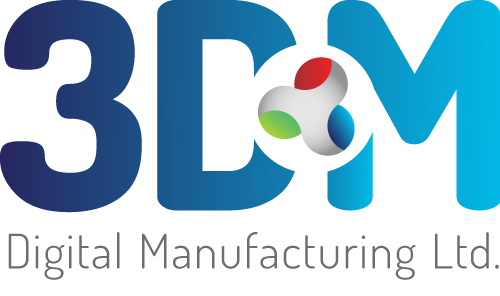about us
3DM operates in the field of plastic polymer industrial 3D printing. The technology and the product that the company has developed will enable the next leap in the industrial 3D printing world by opening the market to an enormous range of applications as a result of expanding the material library availability to industrial printing, improving of the mechanical characteristics of the printed component, and significant reduction of the printing costs.
The automotive and aviation industries, for example, are some of the largest adopters of plastic 3D printing technology for industrial needs. Thus, a car manufacturer may supply spare parts for a large variety of car model’s body by keeping a ‘digital warehouse’ from which spare parts may be printed, and send them to the customer within a few days. The supplier is thus able to save on storage and inventory management costs while maintaining a high level of customer service with “inventory on demand”.
The consumer goods industry also aims to utilize the innovation of industrial printing to develop a range of custom-made products such as shoes, helmets, bike seats, glasses and more. This trend is expected to greatly increase the use of industrial 3D printers.
The company’s core technology is its self-developed semiconductor laser component for 3D printing. The company uses these components for optimal melting of all thermoplastic material families. Its small size (several millimeters), high power, low manufacturing cost has allowed the company to design a new printhead which combines many dozens of laser components into a matrix of laser beams that accelerate printing speed. The company has a registered patent for the use of its laser technology in plastic polymer 3D printing.
The company’s controlling shareholders are Terralab Ventures and Dr. Daniel Majer. Dr. Majer holds a Ph.D. in physics from the Weizmann Institute of Science and has over 25 years of experience in the development of electro-optic components. He has engaged in the development of lasers since 2005 and in the development of 3D printing technology since 2012. The company started out as an incubator company of Terralab Ventures which, after the IPO, holds around 23% of the company’s shares.
Before the IPO, the company raised funds from Terralab Ventures, 3D Ventures Group (US based strategic private group) and a private Israeli investors group. The company is located in Rosh HaAyin, Israel.
3DM has successfully completed an IPO in Tel Aviv Stock Exchange and begun trading in June 2021. The company has raised $13 Million in a Pre-IPO & IPO rounds from several institutional entities.
3DM’s printhead capabilities:
- High printing speed, up to ten times and more compared with existing printing technologies, irrespective of the size of the printing surface, will lead to a reduction of up to 90% in printing costs.
- Printing any thermoplastic polymer with industrial-standard mechanical performance (up to 2-9 times better than existing technologies) will open up an enormous range of markets and applications for industrial printing.
- Printing resolution of up to 5-8 times better than leading printers will allow small details printing and excellent surface finish.
The need for technological innovation
The plastics market has for decades made extensive use of plastic injection molding for a broad range of applications. In 2019, the global plastics manufacturing market was valued around $570 billion. Despite the demand in the market for industrial printing solutions, the market share of industrial printing is a few percent due to insufficient technological innovation alongside the high costs of printers and raw materials. 3DM estimates that the printhead developed by the company brings to the market the technological innovation that will enable many more manufacturers and customers to make use of 3D technology for printing industrial products on a larger-than-ever scale and at lower costs, resulting in a significant increase in the industrial printing’s market share in the plastics manufacturing market.
Technology penetration catalysts
The global Covid-19 pandemic led to significant disruptions in the supply chain with an emphasis on the supply of products from the East to the West, causing difficulties in the supply of both raw materials and products, and consequently many manufacturers, with the support of their countries, are exploring the possibility of repatriating the manufacturing of all or part of the finished product to domestic manufacturing centers. As an example the U.S. Administration launched a $2 trillion incentive program which marks a trend of development and transfer of manufacturing abilities to the U.S. from countries where significant manufacturing has been carried out until now. The company believes that this trend may lead to a rise in the demand for 3D manufacturing in fields which, until now, had been manufactured outside of the U.S., including consumer goods and parts for the automotive and aviation industries.

